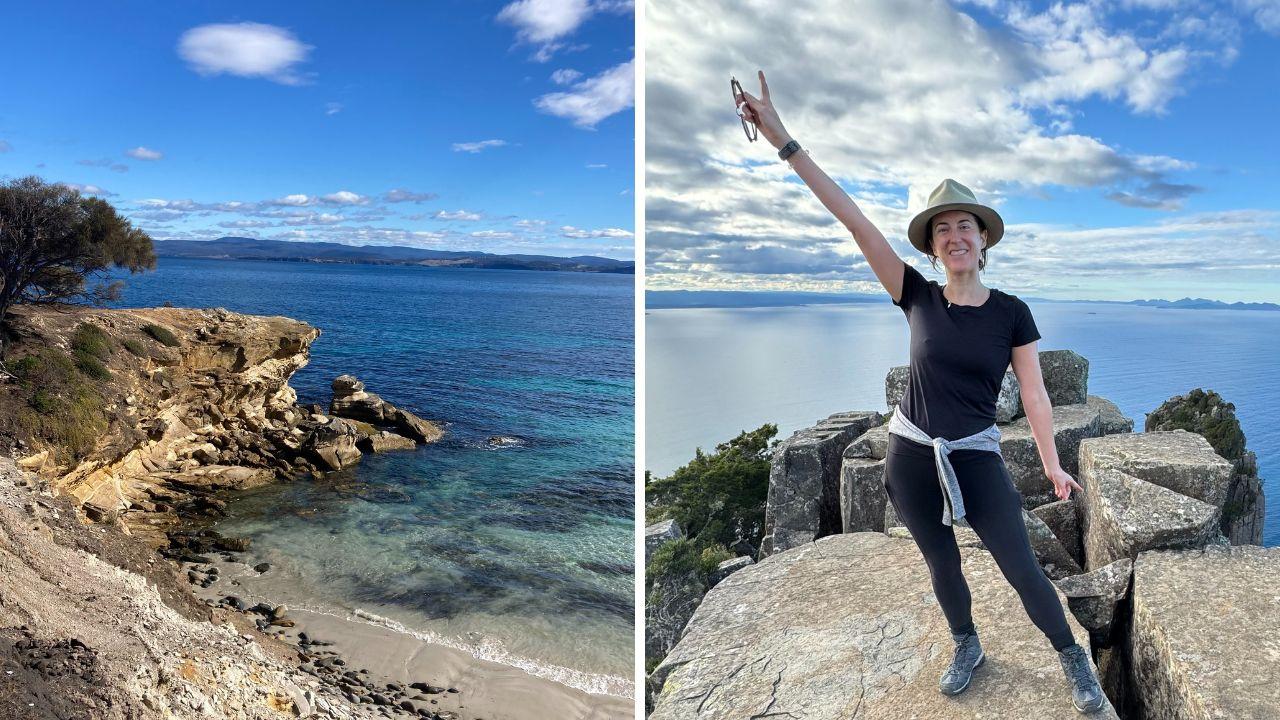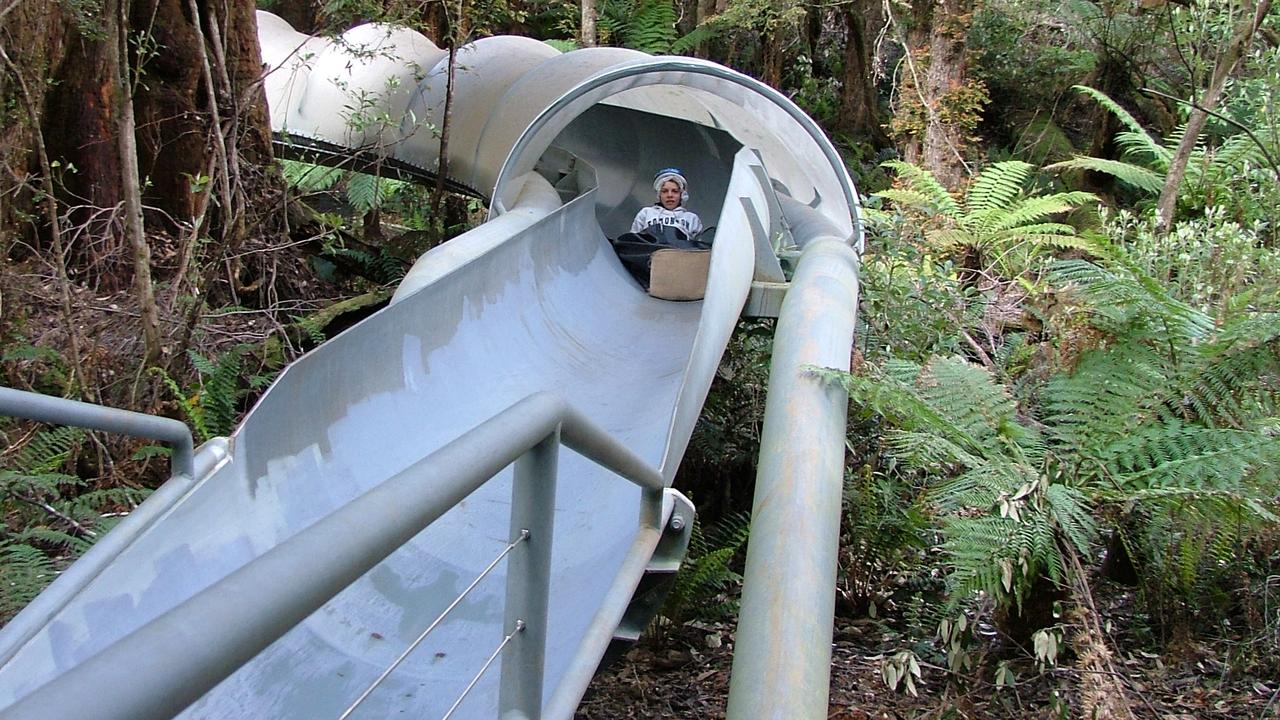China sets its sights on Tasmania with controversial $100m development plan
CHINESE tourists are flocking to this surprising Aussie state in record numbers. But an ambitious $100 million plan has sparked a local backlash.
CHINA has its sights set on Tasmania.
A proposed $100 million resort on the southern state’s east coast backed by Chinese investors is proving controversial, with residents concerned about the impact on their surroundings.
Tourism currently contributes around $2.3 billion — around nine per cent — to the Tasmanian economy.
The state government wants to capitalise on this, with over a billion dollars designated for hotel developments.
But locals are seriously concerned that the island’s natural beauty may be at risk.
CHINA’S GROWING FASCINATION WITH TASMANIA
In November 2014, Chinese president Xi Jinping made a historic visit to Hobart. He was the highest-profile head of state to visit the state, and his much-publicised visit inspired a massive boom of Chinese visitors.
That same year, Tasmanian Premier Will Hodgman declared the state “open for business” — which he reiterated in parliament just last week.
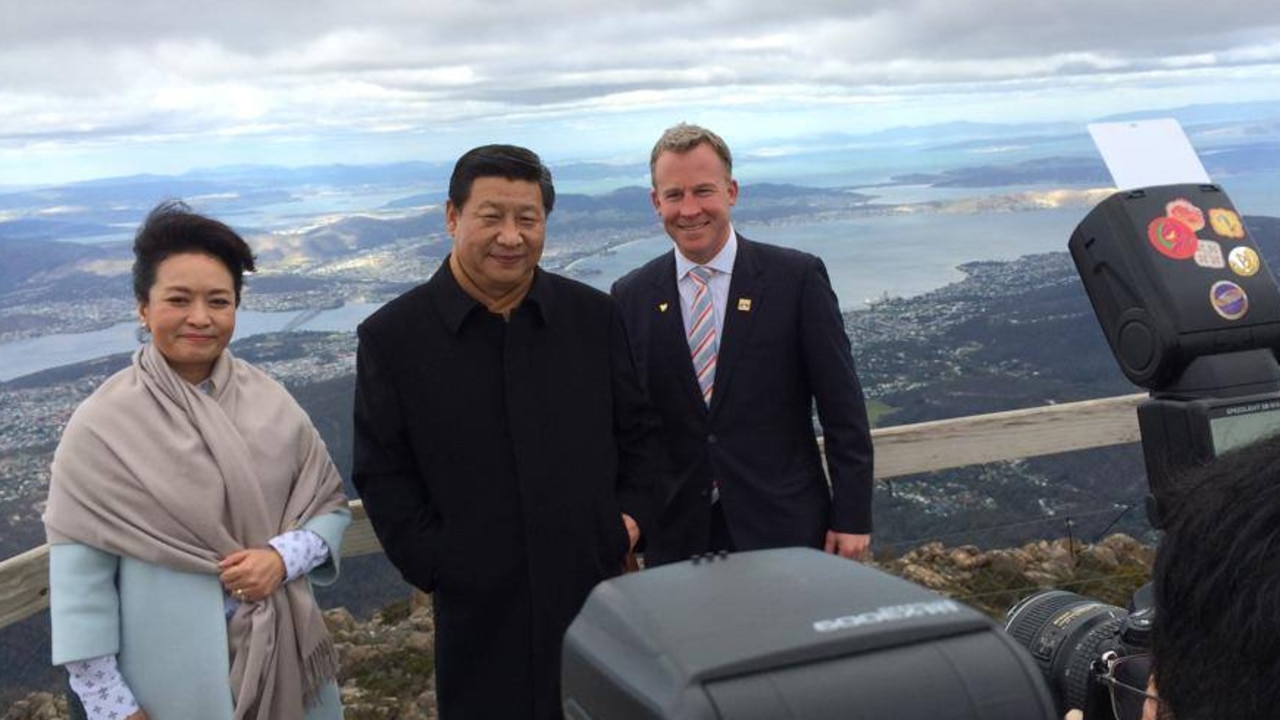
Since then, Chinese tourists and investors alike have increasingly taken an interest in the tiny southern island.
Tasmania received 35,000 Chinese visitors last year, making up 13 per cent of the state’s international visitors and spending a total of $83 million — a whopping increase of 63 per cent on the year before.
In 2016, Australia’s biggest dairy firm Van Diemen’s Land Company was sold to a Chinese businessman for $A280 million.
Earlier this year, its five Tasmanian directors all quit. In 2017, Chinese millionaire William Wei purchased the award-winning Villa Howden wedding venue, which looks out onto North West Bay.
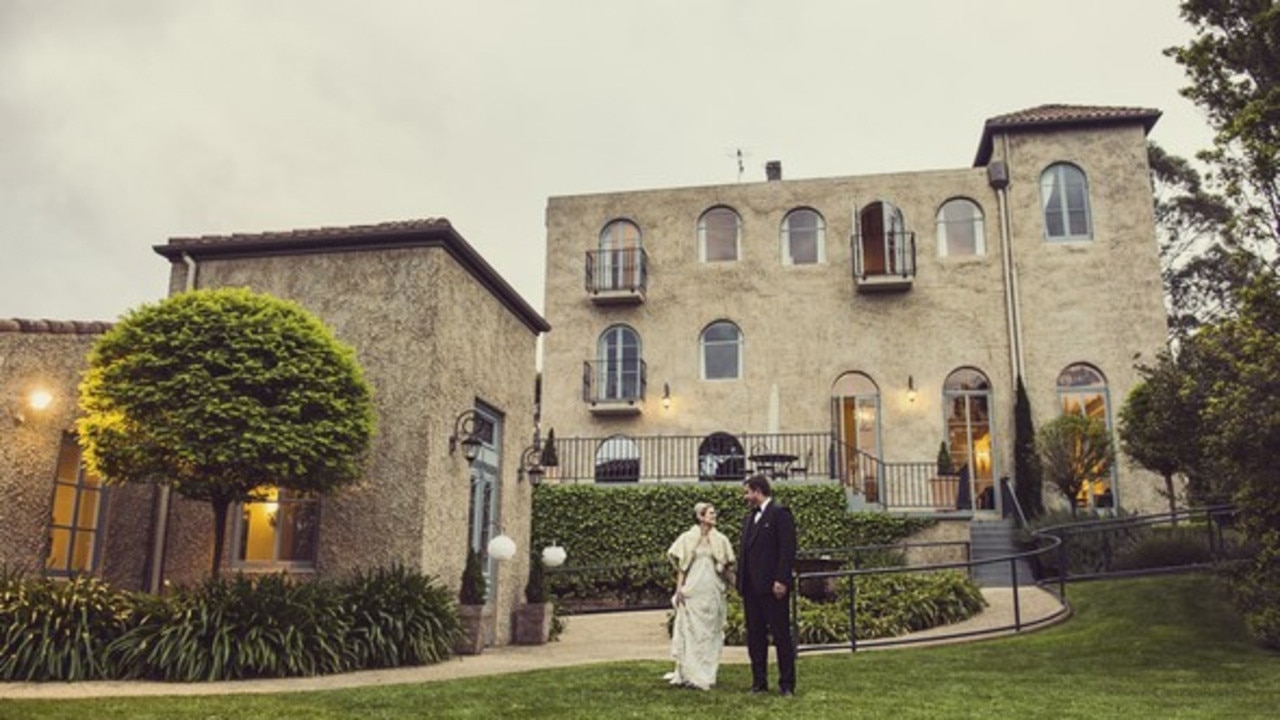
But over the past two months, a huge China-backed eco-resort has seen locals holding different concerns.
CONTROVERSIAL CHINA-BACKED $100M DEVELOPMENT
In April this year, a proposal was announced for a $100 million eco-resort called Cambria Green, which would be developed at Dolphin Sands, a picturesque coastal region north of Swansea in Tasmania.
The project has been labelled one of the state’s biggest tourism developments, and would include a 300 villa and unit precinct, a health retreat, a 120-room “Cambria Sky hotel’ and 240 accommodation units. The resort would stretch over 3000 hectares, including a golf course.
A palliative care unit was also included in the development’s master plan.
The property would overlook the breathtaking Freycinet National Park, which is one of the state’s biggest tourism attractions.
It was proposed by the Cambria Green Agricultural Tourism Management, helmed by Hong Kong-born Melbourne developer Ronald Hu, and Liu Kejing, a Chinese businessman from Shandong.
On its Facebook page, the pair said they want to “bring the surrounding community along our long-term journey, with an aim to attract more Tasmanian and international tourists, to both enjoy the beautiful East Coast of Tasmania and bring added economic value and jobs to the region”.
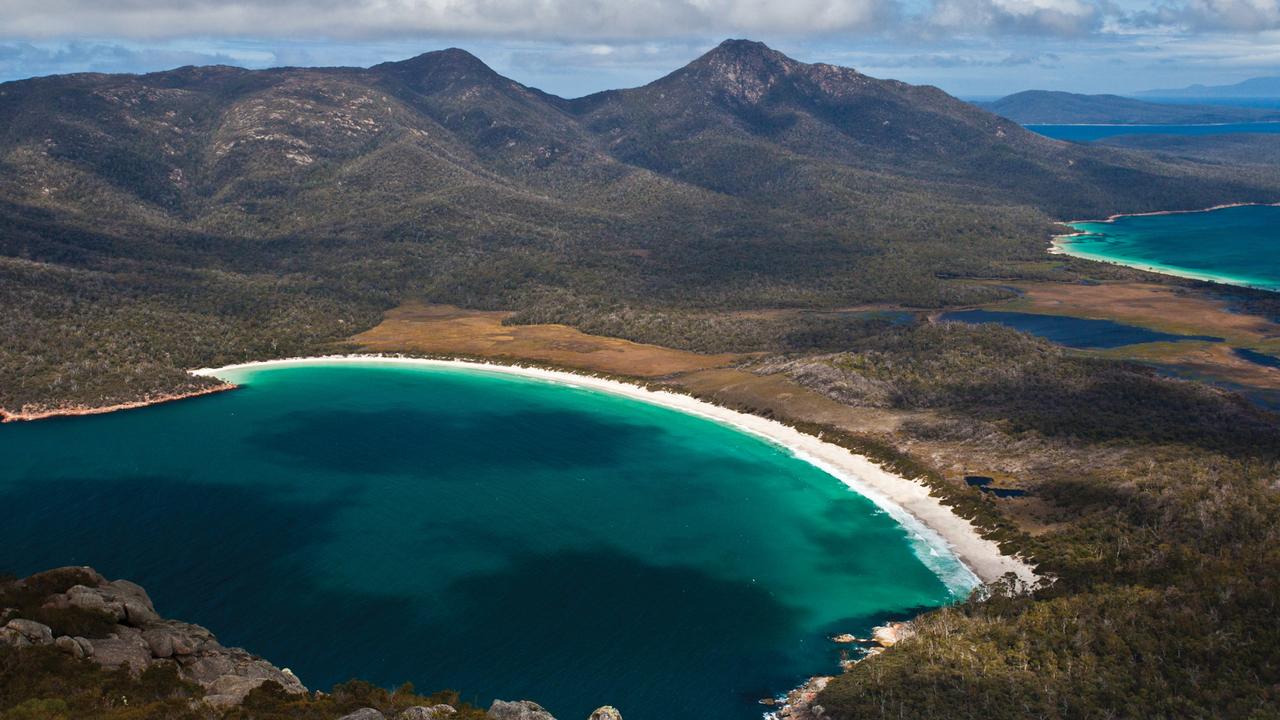
The majority of the landowner consent forms have been signed by Mr Kejing.
The development is hoping to attract wealthy Chinese tourists to the region. Last year, Chinese tourism in Tasmania saw a 60 per cent increase on 2016. There were a total of 279,000 international tourists in Tasmania last year, spending almost $500 million.
Tasmania currently has the highest level of foreign ownership of any Australian jurisdiction, with China its largest investor, according to the Guardian.
WHY LOCALS ARE WORRIED
The proposed development has sparked a number of concerns among Swansea locals.
Anne Held, president of the East Coast Alliance, told news.com.au people feel they’ve been left in the dark over the development.
“The main concerns are really the scale and intensification of what they say they’re going to do,” she said. “It just begs the question — does an area that’s as pristine, as stunning serene and majestic as this need something that’s as big as a new town with its own commercial centre, at the expense of people who live there?
“You’d imagine this could fit around a major city, but not around a small rural village on the east coast.”
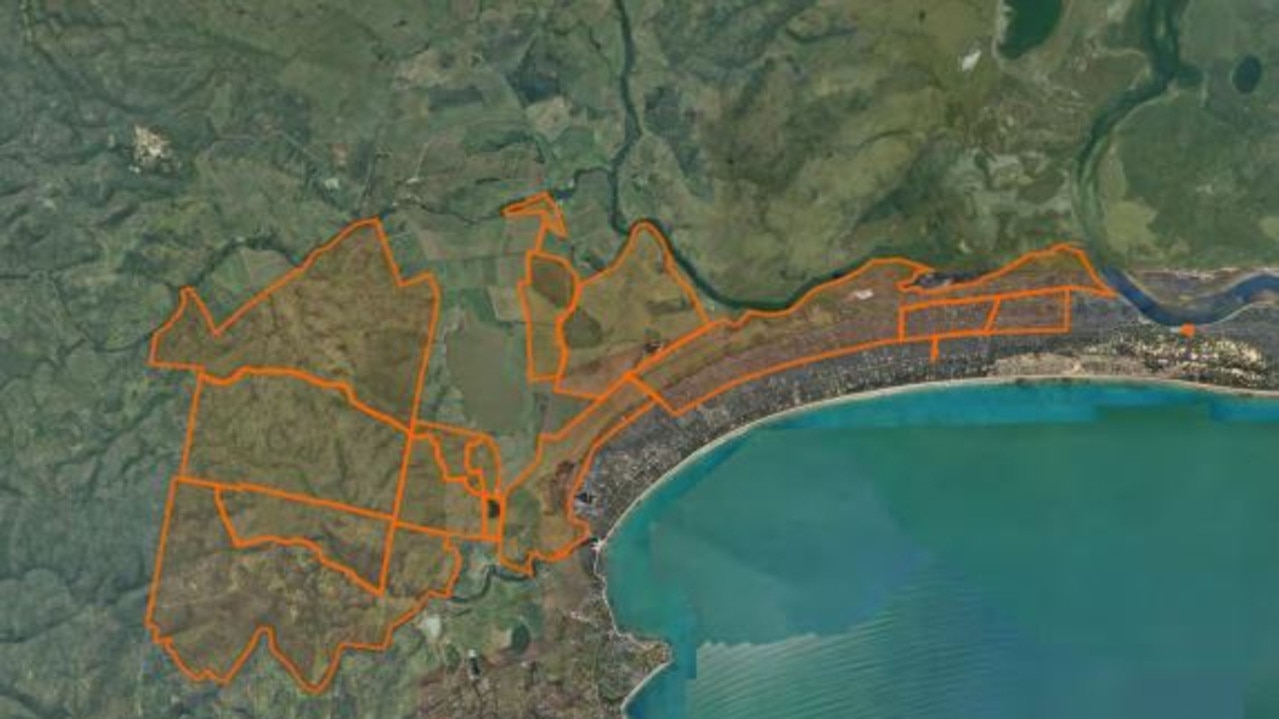
The developers said it will be good for the economy, in that it will encourage tourism and create full-time jobs, but Anne said locals are “not convinced” it will raise employment figures significantly.
It didn’t help that China broke the news of the development three days before Tasmanians heard about it, holding a signing ceremony in Beijing that celebrated a partnership between Beijing Lidaohengtong Culture and Art Company and Cambria Green to create three art museums on the property.
“The signing ceremony created fear because it happened three days before where they initiated the application. It felt like Cambria Green had gone into this sign-in agreement with the Beijing Culture and Art Company and left us in the dark.
“There was no consultation before the area plan was submitted. They haven’t been clear in exactly what they want, and there’s this whole element of the unknown that creates a feeling of mistrust.”
She also said locals hold environmental concerns about how developments — if they go ahead — could affect Tasmania’s unique flora and fauna.
A CASE OF FOREIGN INVESTMENT GONE TOO FAR?
The Tasmanian Greens have slammed the proposal, saying the development is symbolic of growing concerns over foreign ownership and influence in Tasmania.
“There has been an unprecedented surge in money coming in from businesses that are closely linked to the Chinese communist government, there is no way around that,” said Tasmanian Greens Leader Cassy O’Connor.
Ms O’Connor stressed it was not about race or ethnicity, saying it’s rather about politics and the strategic objectives of the “oppressive and authoritarian” Chinese government.
“We will not be the useful idiots for the Chinese Communist Party. We will come into this place and defend Tasmania’s sovereignty, our food security, our way of life and our cultural identity every single day of the week.”
Mr Hu, the Melbourne developer, rejected the idea that influence operations were relevant.
“If my operation influence something, would I call it Chinese influence or not? Because I’m Australian, I’ve been here 30 years, alright? I definitely share Australian values. I am one of the Australians,” he told the ABC. “But I don’t know, people might think, ‘You are not that type of Australian’. I don’t know.”
Political tensions between Canberra and Beijing remain high. Over the past year, the Chinese government has been under ongoing scrutiny over its alleged interference in Australian politics. Likewise, Canberra has indicated it may be prepared to go to war with China if tensions were to escalate in the South China Sea.
Both these issues have sparked threats from the Chinese government. Just last month, the state-run Global Times issued a lengthy editorial threatening trade reductions to harm our economy, to “make Australia pay for its arrogant attitudes it has revealed toward China over the past two years”.
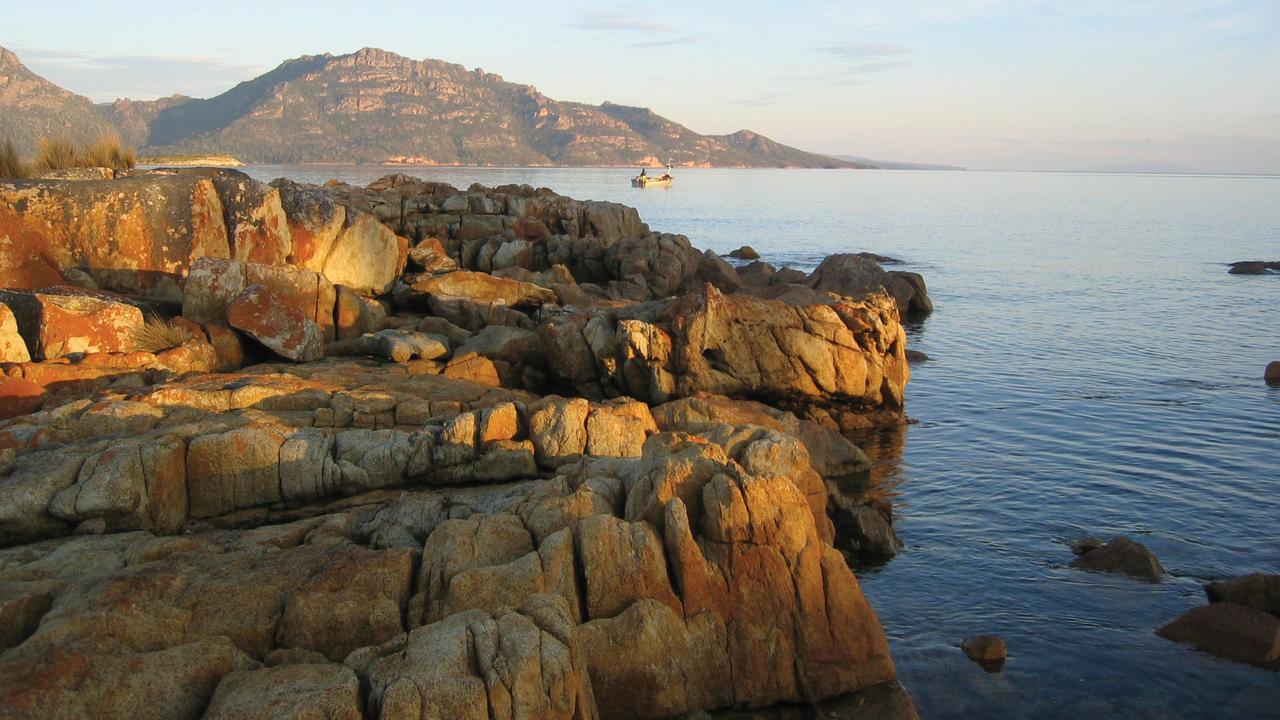
But for locals, this is not as significant. Anne says Tasmanians are mainly concerned with how much their pristine surroundings may potentially change.
“If this goes through, it sets a scary precedent for Tasmania,” she said. “Tasmania’s beauty is based on its national parks, its heritage, its gorgeous environment.
“For a development of this nature to take place in this prime spot on Tasmania’s east coast … that sets a precedent for the rest of the state for sure.”


